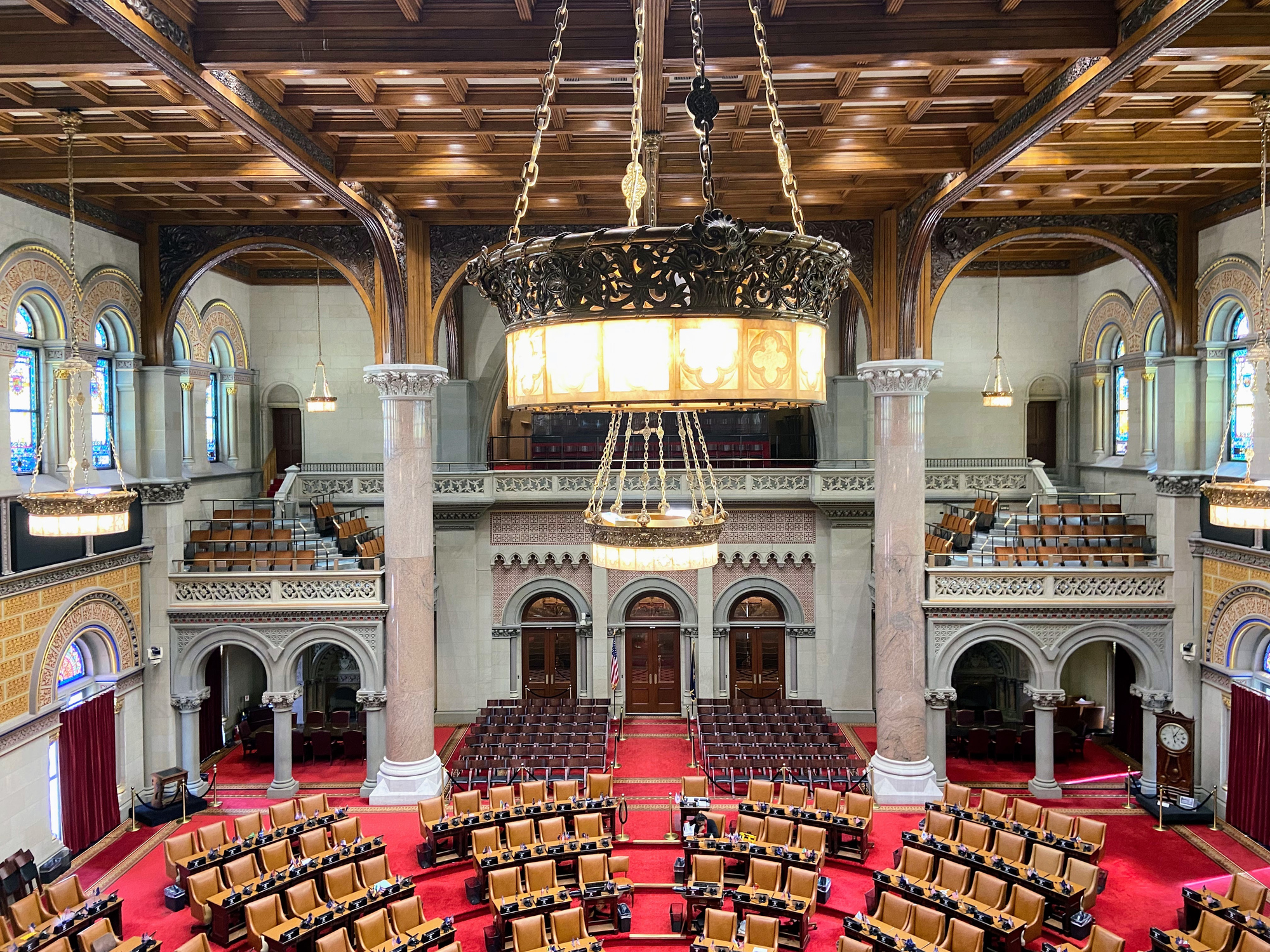
As climate change becomes a growing concern for States and communities, electric vehicle infrastructure has become a slow morning trend but one that is building momentum as more state- and municipal-level entities work to improve efficiency, lower emissions, and upgrade infrastructure.
New Jersey
Under a new law, S2252, signed by Governor Phil Murphy, New Jersey has approved a $5,000 electric vehicle (EV) rebate, providing for comprehensive charging infrastructure, and electric public transit. Assemblyman Dan Benson (D-14), Chair of the Assembly Transportation Committee was one of the primary sponsors of the measure in the Assembly. The state program, which takes effect immediately, allocates $300 million over 10 years and will start offering those who buy electric vehicles up to a $5,000 cash-on-the-hood rebate.
For the first year, the amount of the incentive will “be equal to $25 per mile of EPA-rated electric-only range up to a maximum of $5,000 per eligible vehicle.” That includes plug-in hybrids, but only through December 31, 2022. The law also creates a 10-year incentive program for in-home electric vehicle supply equipment (EVSE), of up to $500 per person, under parameters yet to be determined.
The new law also requires the state’s transit system, NJ Transit, to phase in the purchasing of electric buses and purchase only zero-emission buses after 2032. It also reserves 20% of the program’s total funding to support programs aimed at reducing electricity demand or costs to consumers in low- to moderate-income areas. Additionally, it calls for installing another 1,400 charge points, including 400 DC fast chargers—150-kW “where feasible”—to fill out a statewide fast-charging network.
The new law sets new standards for charging at multi-family residential housing and at “franchised overnight lodging establishments.” The law allocates ten percent of the total funding toward “supporting programs that enhance the stewardship and restoration of the State’s forests and tidal marshes that provide important opportunities to sequester or reduce greenhouse gases.” With the legislation, New Jersey aims to make at least 330,000 of its light-duty vehicles electric by the end of 2025 and at least 2 million electric by the end of 2035—and 85% of leased vehicles all-electric by 2040.
California
A new California law that went into effect Jan. 1, 2020 is intended to encourage low-income motorists to buy an affordable used EV. Qualifying solo drivers who buy a used electric car can gain access to carpool lanes. The new law applies to people who earn less than $65,777 a year, which is 80% of California’s median income.
As of December 3, 2019, California EV buyers purchasing vehicles with a price exceeding $60,000 do not qualify for the state’s $2,500 clean-vehicle rebate. The change eliminated rebates for luxury EVs. Single taxpayers who earn $150,000 or more are no longer eligible for state rebates, but they still qualify for carpool-lane stickers.
Similar to New Jersey’s law, the new Californian law could also stimulate the EV market – especially for used- and more affordable EV models. First-generation used-EVs may be purchased for less than $10,000. Due to the rapid pace of EV development, electric cars typically depreciate more quickly than gasoline cars. That could rapidly change under this law, especially if other states follow suit.
References:
https://www.ttnews.com/articles/new-jersey-gov-phil-murphy-signs-electric-vehicle-law
https://nj.gov/governor/news/news/562020/approved/20200117b.shtml
Latest News
Photo credit: iStock.com/Hamburg Studios As Pennsylvania continues to navigate an evolving energy landscape, state leaders are proposing new approaches to ensure reliability, affordability, and sustainability. Governor Josh Shapiro recently announced his “Lightning Plan”, a six-part [...]
Photo credit: iStock.com/StudioGraphic As technology continues to evolve, digital driver's licenses (also known as mobile IDs) are gaining traction across the United States. States are increasingly exploring legislative measures to modernize driver identification systems, enabling [...]
Photo credit: iStock.com/Ray Tan As the impacts of climate change intensify, several U.S. states are taking legislative steps to address the mounting costs of adaptation and resilience. New York, New Jersey, and Vermont have recently [...]
In this episode of The Back in Session Podcast, hosts Ryan Stevens and Ryan DeMara are joined by Brendan Williams from PBF Energy. They delve into the state of energy policy, the refining sector, and [...]






Stay In Touch